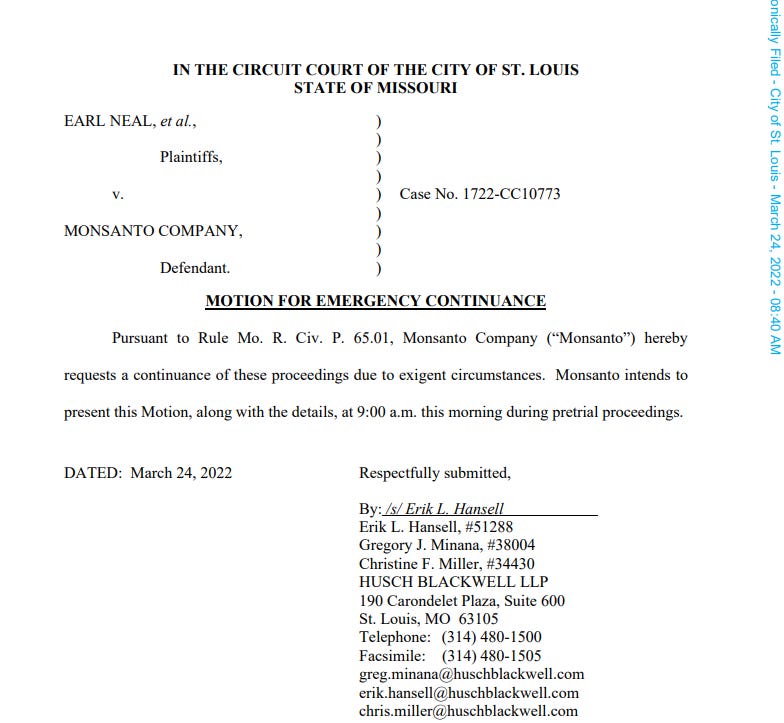Monsanto seeks “emergency” delay for St. Louis trial
Monsanto on Thursday asked a St. Louis judge to delay the start of a trial over claims brought by three men alleging exposure to Monsanto’s glyphosate-based herbicides, such as the popular Roundup brand, caused them to develop non-Hodgkin lymphoma.
Opening statements in the case of Neal v. Monsanto are expected next week. But on Thursday morning Monsanto requested a continuance “due to exigent circumstances.” The company did not detail its reasons in the filing.

The move by Monsanto comes after the judge in the case agreed to allow Courtroom View Network (CVN) to livestream the trial, starting on March 30. Jury selection is supposed to begin today.
The trial will be the first to take place in the company’s former hometown, with jury selection set to start on March 24. (A previous trial in St. Louis was cancelled just hours before it was scheduled to begin due to a settlement agreement.)
The trial will focus on the complaints of three individuals: Robert Bird, an Iowa man who sprayed Roundup products routinely on a tree farm; Blake Buchan, a 39-year-old Georgia man who used Monsanto’s products to spray fence lines and other areas of two properties he maintained; and Ozie Parker, also of Georgia, who grew up helping out on his family farm, mixing and spraying Roundup weed killers on hundreds of acres for many years.
The plaintiffs allege that Monsanto was well aware of the risks of the active ingredient in its herbicides – a chemical called glyphosate – but hid the risks from consumers, failing to warn them despite scientific evidence showing the cancer-causing potential of the products.
The plaintiffs filed a notice on Wednesday dismissing their claims for defective manufacture and for violation of the Missouri Merchandizing Practices Act but other claims remain.
Monsanto denies its products cause cancer, pointing to backing by the Environmental Protection Agency and other regulators around the world for the safety of the glyphosate-based herbicides.
The case is being overseen by St. Louis Circuit Court Judge Michael Mullen, and is expected to last about five weeks, according to court spokesman Jacob Long.
 EWG
EWG


